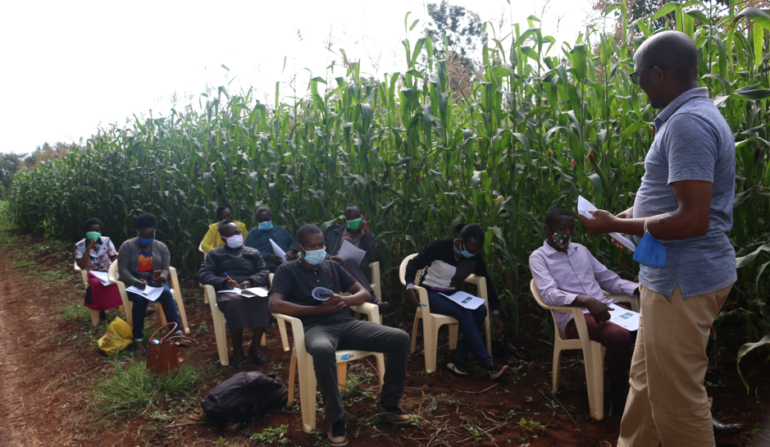Nigeria, with its vast agricultural potential, stands at the brink of a transformative era in its agriculture sector. However, to harness this potential and drive sustainable growth, it is imperative to equip the next generation of agricultural professionals with practical skills and hands-on experience through compulsory in-service training. While other disciplines such as communication and medicine offer internship opportunities, it’s time for agriculture students in Nigerian institutions to also undergo robust in-service training programmes, not as a voluntary activity, but as part their curriculum, in order to immerse them in real-world agricultural settings beyond conventional classroom learning. In-service training for agriculture students is essential for several reasons:
1. Practical skill development: Agriculture is a hands-on field that requires practical skills and experience. In-service training provides students with the opportunity to apply theoretical knowledge in real-world settings, honing their skills in crop cultivation, livestock management, agribusiness operations, and more.
2. Industry relevance: As the agricultural landscape evolves with advancements in technology and practices, it’s crucial for students to stay abreast of industry trends and innovations, not just practising with hoe and cutlass. In-service training exposes students to modern agricultural techniques, emerging technologies, and best practices, ensuring their readiness to contribute meaningfully to the sector upon graduation.
3. Workforce preparedness: By engaging in in-service training, students gain valuable work experience and develop professional competencies that enhance their employability. Employers value candidates with practical experience, and in-service training provides students with a competitive edge in the job market, especially in the area of precision agriculture.
4. Networking and collaboration: In-service training offers students the opportunity to network with industry professionals, mentors, and fellow students, fostering collaboration and knowledge exchange. These connections can lead to future employment opportunities, mentorship relationships, and partnerships for innovation and research.
Within agriculture faculties lie fertile grounds for the implementation of compulsory in-service training programmes. Departments such as agronomy, animal science, agricultural economics, and agribusiness management, can benefit from structured in-service training initiatives tailored to their respective disciplines, such as:
1. Agronomy: Agriculture students specialising in agronomy can undergo in-service training on established farms, gaining hands-on experience in crop production, soil management, pest control, and agricultural machinery operation. Partnering with commercial farms and research institutions will expose students to diverse cropping systems and sustainable agriculture practices.
2. Animal science: In-service training opportunities for animal science students can include internships at livestock farms, veterinary clinics, and animal feed companies. Students can learn about animal husbandry, health management, breeding techniques, and value-added processing of animal products.
3. Agricultural economics and agribusiness management: Students pursuing degrees in agricultural economics and agribusiness management can benefit from in-service training at agribusiness firms, food processing ventures, financial institutions, and government agencies. Exposure to market analysis, supply chain management, farm finance, and policy formulation will prepare students for careers in agricultural finance, marketing, and policy advocacy.
4. Agricultural engineering: Agricultural engineering students can participate in in-service training programmes focused on farm mechanisation, irrigation systems, renewable energy applications, and post-harvest technology. Collaboration with agricultural machinery manufacturers, irrigation companies, and food processing industries will enhance students’ technical skills and innovation capabilities.
5. Agricultural extension: Extension education plays a pivotal role in bridging the gap between agricultural research, technology, and farming communities. Therefore, including agriculture extension students in compulsory in-service training programmes is paramount to ensuring effective knowledge dissemination, policy and advocacy capacity building and sustainable agricultural development.

